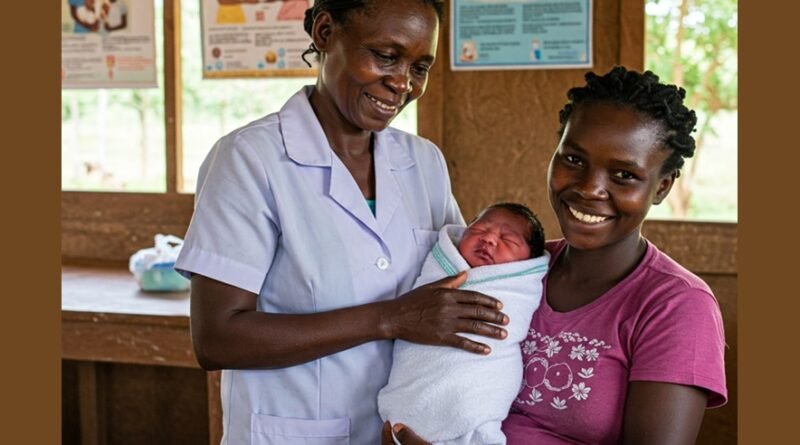International Day of the Midwife 2025
Honoring the Guardians of Maternal and Newborn Health
Every year on May 5, the world observes the International Day of the Midwife to honor the indispensable contributions of midwives to global health. Established by the International Confederation of Midwives (ICM) in 1992, this day aims to raise awareness about the crucial role midwives play in ensuring safe childbirth, promoting maternal and newborn health, and empowering women and families across the globe.
In 2025, as the world continues to rebuild and reshape healthcare systems post-pandemic, midwives remain at the forefront of community-based and holistic care. The theme for International Day of the Midwife 2025 is expected to focus on “Midwives: Pioneers of a Healthier Future”, emphasizing their leadership in advancing universal healthcare.
Read This: International Day of the Midwife 2025: Captions, Quotes & Wishes
History of International Day of the Midwife
The International Confederation of Midwives (ICM), a global organization representing over 140 midwifery associations in more than 120 countries, first commemorated this day in 1992. Since then, May 5 has been a global opportunity to advocate for better midwifery education, training, resources, and recognition.
The celebration has grown to include community events, online campaigns, policy advocacy, health fairs, and educational seminars, highlighting both achievements and challenges in maternal healthcare.
The Role of Midwives in Healthcare
1. Comprehensive Maternal Care
Midwives provide essential services before, during, and after childbirth, including:
- Antenatal check-ups
- Monitoring fetal growth
- Delivering babies
- Postnatal care
- Counseling on nutrition, breastfeeding, and family planning
2. Reducing Maternal and Infant Mortality
According to the World Health Organization (WHO), midwives who are well-educated and supported can prevent up to 83% of all maternal deaths, stillbirths, and newborn deaths.
3. Holistic and Community-Based Care
Midwives often serve in rural and under-resourced regions, making healthcare accessible to women who may otherwise be left behind. Their approach focuses on dignity, cultural sensitivity, and empowering women during childbirth.
Theme for 2025: “Midwives: Pioneers of a Healthier Future”
While the official theme for 2025 will be confirmed by the ICM, early indications and global health trends suggest a focus on sustainability, leadership, and digital transformation in midwifery. The expected theme, “Midwives: Pioneers of a Healthier Future”, reflects the following:
- Leadership: Midwives are assuming key roles in health systems management and education.
- Innovation: Embracing digital tools like telehealth, mobile apps, and AI to support remote maternal care.
- Sustainability: Promoting environment-friendly practices in maternal healthcare.
- Equity: Closing the healthcare gap for marginalized populations, especially in low-income countries.
Global Events and Celebrations
1. Virtual and In-Person Conferences
- ICM Global Conference Webinars
- Regional midwifery associations holding training and awareness sessions
2. Policy Advocacy
- Campaigns urging governments to invest more in midwifery education, licensing, and infrastructure.
- Push for midwives to have a seat at the decision-making table in health policy.
3. Social Media Campaigns
Hashtags like #IDM2025, #MidwivesMatter, and #SupportMidwives trend worldwide, spotlighting personal stories and local heroes.
4. Recognition and Awards
Hospitals, NGOs, and governments often celebrate the day by recognizing outstanding midwives for their dedication and service.
Challenges Faced by Midwives
Despite their critical role, midwives face a range of systemic challenges:
1. Shortage of Skilled Midwives
WHO estimates a global shortage of 900,000 midwives. This gap contributes to preventable maternal and newborn deaths.
2. Lack of Training and Resources
Many countries struggle with underfunded training programs, outdated curricula, and lack of access to essential supplies.
3. Gender Discrimination
As a female-dominated profession, midwifery is often undervalued. Midwives may face lower pay, lack of respect, and limited career advancement.
4. Safety Concerns
Midwives, especially in conflict zones and rural areas, often work without adequate protection, facing physical and emotional strain.
The Future of Midwifery: A Call to Action
1. Investing in Midwifery Education
Governments and health organizations must prioritize:
- Up-to-date training
- Licensing and regulation
- Continued professional development
2. Strengthening Health Systems
Integrated health systems with a strong midwifery workforce can improve health outcomes and reduce long-term costs.
3. Digital Integration
Utilizing mobile technology, AI tools, and telemedicine can enhance outreach and effectiveness, especially in remote areas.
4. Empowering Midwives as Leaders
Midwives must be empowered to contribute to healthcare planning and policy development, not just implementation.
How You Can Celebrate the Day
Whether you’re a healthcare professional, policymaker, journalist, student, or concerned citizen, here’s how you can participate:
- Share stories of midwives who made a difference in your life.
- Support local or global NGOs working in maternal health.
- Attend webinars and conferences on maternal and newborn health.
- Write blogs, articles, or social media posts using hashtags like #IDM2025.
- Advocate for better policies and investment in midwifery services.
Conclusion
The International Day of the Midwife 2025 is not just a celebration—it’s a call to recognize, respect, and invest in midwives who are at the heart of safe motherhood and healthy families. As the world strives to meet UN Sustainable Development Goals (SDGs), particularly Goal 3: Good Health and Well-being, midwives will play a pivotal role in ensuring no mother or child is left behind.
By honoring midwives today, we pave the way for healthier societies tomorrow.

